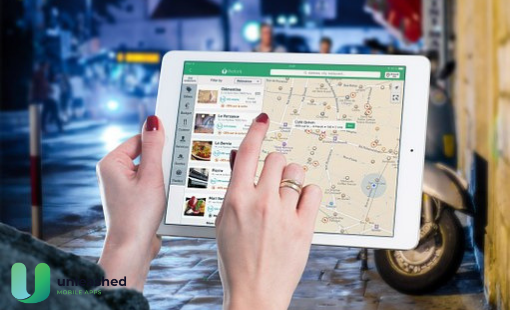In 2019 the majority of large retailers in the United States have a mobile app. Mobile apps are such a major part of the retail game now that 57% of shoppers use them while shopping, according to a piece published in January by Retail Dive Most often surveyed shoppers said they used the apps in-store to discover sale items or coupons to use during their visit.
Apps are more than just a choice now, it’s a commodity
“Mobile apps are essential for larger online and brick-and-mortar brands alike,” according to an August 2019 piece by Retail Dive. “Mobile shopping app use among U.S. consumers grew 70% over the previous two years”, according to a 2019 App Annie report. The report also notes that retailers like Nike have used mobile apps to merge mobile and in-store experience, including reserving sizes in-store, tapping into rewards and getting help from in-store staffers.”
Especially in the age of “retail apocalypse” when even some of the biggest names in the game are going under, it’s important to stay on top of what consumers want (and expect) from you as a business. But you don’t have to be as big as Target or Best Buy to make a mobile app work for you. Apps can be customized to fit the needs of even the smallest retailer. If 33% of shoppers prefer buying things on their smartphones, chances are they are buying from a mobile app rather than a website. Buying through an app is a much more streamlined process and so many websites, even if they are “mobile-friendly,” are tedious to work around.
Mobile apps for small business
But how can small retailers use mobile apps effectively? Is it even worth the trouble?
The same August article by Retail Dive specifically addresses small businesses and how they are already making apps a key part of their business practice:
“A 2018 survey of 351 small businesses found that 55% of small businesses owned by millennials have mobile apps, followed by 42% of Gen X business owners and 13% of baby boomers, according to market research firm Clutch. Twenty-six percent of respondents said mobile payments were the most valuable feature on their mobile app, followed by 24% who said social media integration as the most valuable feature, per Clutch’s report.
Much like apps are a vital part of major retailers’ omnichannel marketing strategy by remaining a key channel for reaching consumers, they can be a useful tool for acquiring and building relationships with customers. A 2018 Braintree report found that 58% of shoppers browse e-commerce apps or websites on their mobile phones, and at least 38% are doing so at least once a week. But small retailers shouldn’t make an app solely to fit in with their small or larger competitors.”
Retail Dive is absolutely right in that last statement, for sure: integrating an app into your overall marketing and retention strategy just to compete with the big fish is a terrible idea. You need to believe in your app idea in order for it to wholly benefit your business. It’s not wrapping paper; it won’t beautify an otherwise bland gift. Your business’ mobile app needs to be as special and worthwhile as your business.
If you care about it, it’ll be evident to your customers and they, in turn, will care about it too.
Just as in every other aspect of your business you need to ask yourself “why this?” and “why now?” A mobile app can fit into a range of growth opportunities for your business, but it’s up to you to determine what those needs are and how you want to address those needs.
But one thing is for certain, mobile apps are not a fad, and they aren’t going to be a casualty of the “retail apocalypse.”
So, if you are ready to up your business with a mobile app, contact Unleashed Mobile Apps to help brainstorm ideas for your mobile app and then get to your mobile app development. Check out all of the awesome mobile app features here.




